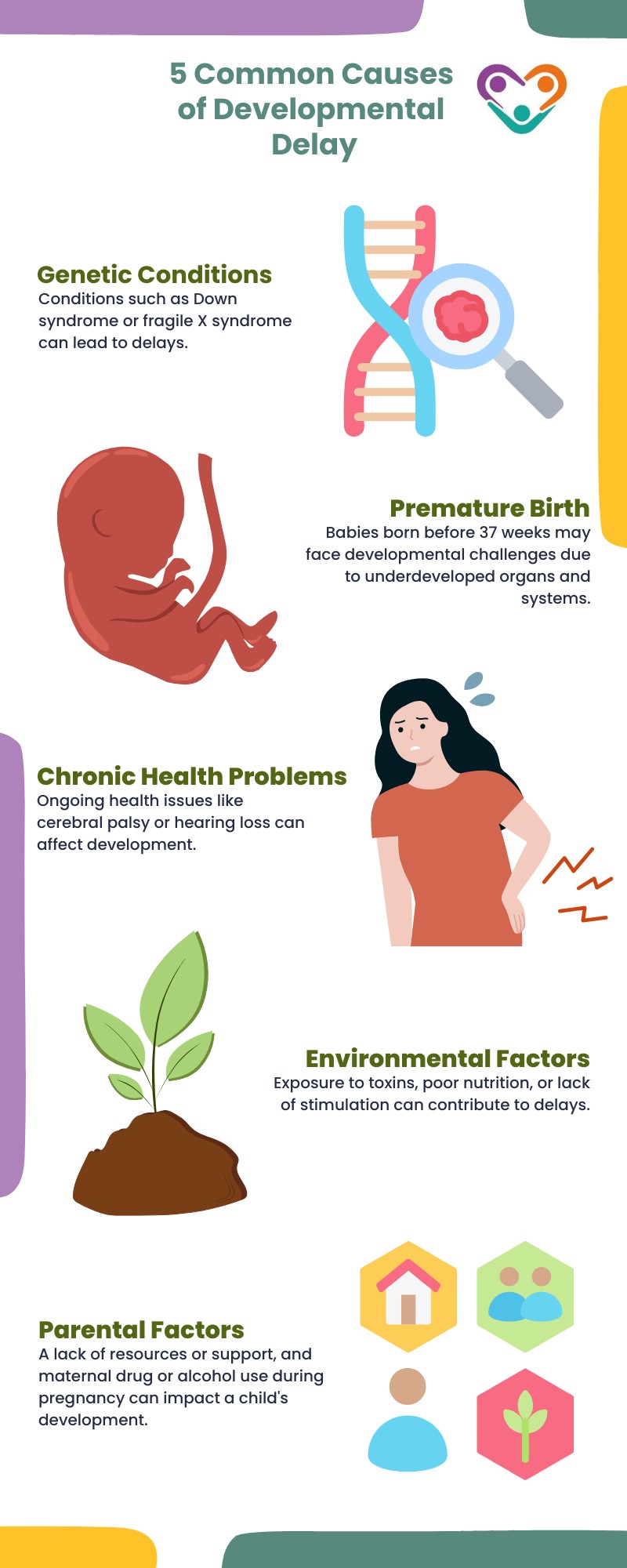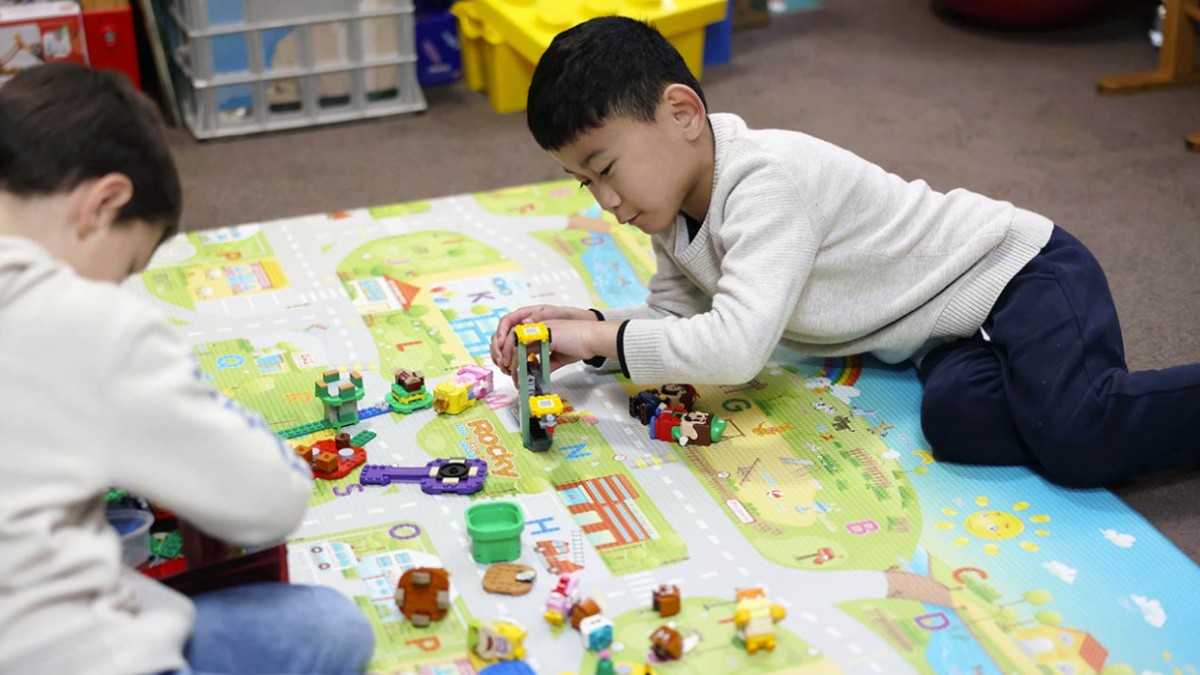Developmental delay occurs when a child doesn’t reach certain milestones within a certain age range. These milestones encompass a variety of skills, including physical, cognitive, communication, social, and emotional skills. It is important to note that each child develops at their own pace; however, significant delays can indicate the need for evaluation and assistance.
The definition can be characterized by the following key aspects:
- Age Range: Delays are identified when a child is not meeting established milestones for their age.
- Areas Affected: Delays can affect one or more areas, including motor skills, speech, and social interactions.
- Diagnosis: Diagnosis is typically made by healthcare professionals based on observations and assessments.
Signs of Developmental Delay
Identifying developmental delays in children is crucial for early intervention and support. Parents and caregivers should pay close attention to milestones and red flags that may indicate the need for further evaluation.
Milestones are key indicators of a child’s development. Here are some important developmental milestones according to age:
- 0-3 months: Begins to smile, tracks objects with eyes
- 4-6 months: Sits with support, reaches for toys
- 7-12 months: Crawls, says “mama” or “dada”
- 1-2 years: Walks independently, follows simple instructions
- 2-3 years: Speaks in simple sentences, plays alongside other children
- 3-4 years: Dresses with assistance, shows interest in other children
- 4-5 years: Can hop or skip, can tell stories
That said, certain behaviors might also indicate a potential developmental delay. Here’s a list of red flags that parents and caregivers should be aware of:
- 0-3 months: Does not respond to loud sounds
- 4-6 months: Fails to babble or make sounds
- 7-12 months: Does not point or gesture
- 1-2 years: Lacks interest in interactive play
- 2-3 years: Cannot follow simple directions
- 3-4 years: Struggles to speak in sentences
- 4-5 years: Difficulty with basic motor skills
Recognizing these milestones and red flags is essential for supporting children with developmental delays. Early detection can lead to timely intervention, which greatly enhances a child’s development and confidence. Families can play a vital role in identifying these signs and seeking appropriate support.
5 Common Causes of Developmental Delay
Understanding the factors that contribute to developmental delays is essential for parents and caregivers. The causes can vary widely and may include genetic, environmental, and prenatal factors.
Here are some commonly identified causes:

Recognizing these causes can assist parents and caregivers in identifying potential risks and seeking timely interventions to support their child’s growth and development.
How to Help a Child with Developmental Delay
Supporting a child with developmental delay involves utilizing various strategies aimed at enhancing their development and confidence. Key components include early intervention programs, individualized education plans (IEPs), and different therapy options.
Early Intervention Programs
Early intervention programs are designed to provide support as soon as a developmental delay is identified. These programs focus on improving developmental skills in young children through tailored services, which may include speech therapy, physical therapy, and family education.
Individualized Education Plans (IEPs)
An Individualized Education Plan (IEP) is a legal document that outlines the educational goals and supports for children with developmental delays once they enter school. The IEP is created collaboratively by educators, therapists, and parents, ensuring that the child’s unique needs are met.
Therapy Options (Speech, Occupational, Physical)
Various therapy options can be beneficial in addressing the needs of a child with developmental delays. Each type of therapy focuses on different areas of development and can be tailored to meet the child’s requirements.
Speech therapy enhances the child’s ability to express themselves and understand language. Meanwhile, occupational therapy improves motor skills and helps with tasks such as dressing and eating.
Lastly, physical therapy aids in developing coordination, balance, and mobility.
Implementing a combination of these strategies can provide comprehensive support for children with developmental delays, fostering their growth and helping them thrive in various environments. To further support your child’s development, consider reading our article, “Overcoming Communication Challenges in Kids with Autism.” It provides valuable insights and practical strategies to enhance communication skills and promote overall success.
Advocating for Individuals with Developmental Delay
Advocacy plays a crucial role in supporting individuals with developmental delays. Families can take steps to ensure that rights are upheld, inclusivity is promoted, and awareness is raised within their communities.
Parents and caregivers should be familiar with the rights of individuals with developmental delays. Various laws and regulations exist to protect their educational and social rights.
Key resources include the Individuals with Disabilities Education ACT, the Americans with Disabilities Act, and the Local Education Agencies. Understanding these rights helps families navigate the educational system and access necessary services.
Moreover, creating an inclusive environment is essential for individuals with developmental delays. Families can take action by:
- Encouraging Inclusive Activities: Participation in community events, sports, and group activities fosters interaction with peers.
- Educating Others: Share knowledge about developmental delays to help dispel myths and promote understanding.
- Collaborating with Schools: Work with educators to develop inclusive classroom practices that accommodate diverse learning needs.
These actions contribute to a more accepting society, which can greatly benefit individuals with developmental delays.

Final Thoughts
Developmental delays can affect how a child grows and learns, but with early recognition and the right support, children can thrive. By understanding the milestones, being aware of red flags, knowing the common causes, and seeking out therapies and educational plans, families can make a big difference.
Advocacy and inclusion are just as important, helping to ensure every child has the opportunity to reach their full potential in a world that supports and understands them. We at Golden Care Therapy offer personalized ABA therapy in Georgia, New Jersey, Indiana, New York, and Florida. Our dedicated team tailors each program to fit the unique strengths and challenges of your child, with a strong focus on meaningful progress and lasting growth. If you’re looking for expert support from a team that truly cares, contact us today to learn how we can help your child thrive. Let’s build a brighter future together.
Sources:



